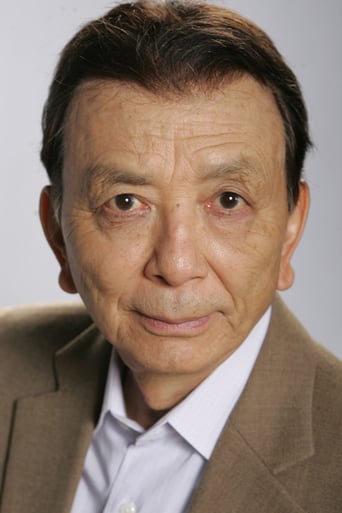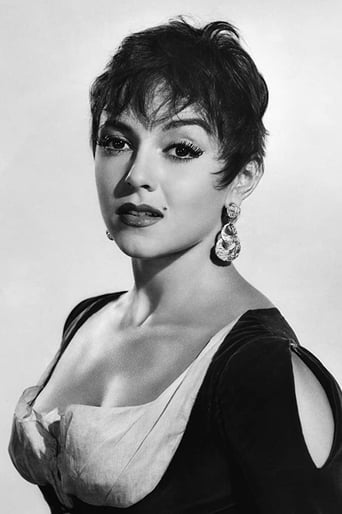Raetsonwe
Redundant and unnecessary.
Listonixio
Fresh and Exciting
Fairaher
The film makes a home in your brain and the only cure is to see it again.
Anthony Youell
I never really expect to enjoy French films anymore than I would think that I would enjoy escargot or frog legs. However, I did. I took the film out on DVD and consequently had the facility to go back over the film when I felt that I "didn't get it".If you're looking for an action film, forget it. "I'm not that kind of film" it would say. The appeal in the film is generated by the very human tensions that exist between the characters, and not just between Sarah Silver (Leelee Sobieski) and Mr Zao (James Hong, whose acting career goes back to "Love is a Many Splendoured Thing" 1955). There is an interlacing of frustration, suspicion, jealousy, spite, anger, futility, despair, and villainy. Overlaying all of this is the sexual tension which is never consummated, nor is ever likely to be, between Sarah and Zao, which endows the film with a sense of foreboding. There is a feeling of imminent disaster. The disaster, however, manifests itself in a direction not anticipated when the lead actress, Sylvia Martin, whose place Sarah wanted to supplant, suffers fatal injuries. The effect on Sarah who had placed a so-called hex on Martin is to change Sarah's life.One of the most intriguing aspects of the film was in the character of Caroline (Maria Loboda) who looks like Emmanuelle Beart. A girl who hovers around the aging Zao and relies on him to feed her birds, and who should be the very embodiment of innocence, is riddled with jealousy (for the 'artiste'), malevolence (her interception of Sarah's parting letter is truly spiteful), and greed - which nearly results in her death when she hungrily snatches up the poisoned cake.Zao is also complex. A man who has suffered the atrocities of the Japanese invasion of China and suffers from the bitterness which resulted from his slaughtered child(ren), kindly succours Sarah who is clearly not looking after herself. But he prepares a lethal cake with Sarah's sleeping pills which he had formerly substituted with rice grains, when she tried to commit suicide, after she rejected him. She rejected him because he had frustrated her melodramatic moment of suicide.Other characters are well drawn too. The thieving neighbour Castellac who tells Zao that if Zao needs him, he's there to help - as he filches Zao's bottle of wine. Suffering from lack of recognition in his retirement (he was a uniformed railway guard) his sexual frustration is partially assuaged by listening over the landing to Sarah's orgasmic cries which, in turn, lead to the intrigue of the 'petition' from the residents.The entire film is shot in shadows and darkness to match the dark motives of the denizens. The film began and ended with the motif of the roller-skaters which brought the film to a pinpoint in time. Nothing was different despite the fatality, sexual assault, and murderous intentions.One criticism: Leelee's Australian accent wasn't!
caspian1978
Your typical American audience will salivate over a movie like L'Idol. For the simple reason of nudity and sexual overtones, truck loads of fans will pile up and wait in line to see a movie like this. Leelee Sobieski has tempted her fan base for years to star in an "art house" picture like this one. Her natural beauty has kept her a popular actress since the start of her career. The French / Polish actress has fooled around with doing swim suit moments in the Glass House and cover up jobs in the NBC movie Uprising. Now, the world gets to see some brief nudity from an actress who has millions of fans who want to see her "show all." But, the movie hasn't been picked up in America?! Two years later, a movie that should have made millions at the video stores hasn't even stepped foot in the U.S. L'Idol is considered your typical French film where sex is always the setting. Although this movie is not about sex, most of your typical French films has the hidden background of sexual struggle between characters throughout the movie. L'Idol has been greatly over looked and should be on the American video store shelves as soon as possible.
pdelacorte
Australian director Samantha Lang has made a movie in Paris, in French, with an American actress playing an Australian actress, and a Chinese-American actor playing a Chinese-French retired chef. Intriguing? For a while. Leelee Sobieski's French is surprisingly good, much better than her acting. James Hong is a fine actor, but clearly an American guy struggling with his French lines. The story (two characters, each alientated in his/her own way, thrown together in a Parisian apartment building)is ultimately trite and uninteresting. Jean-Paul Roussillon does a nice job as the nosy downstairs neighbor, and child actress Marie Loboda could be Emanuelle Beart's little sister, much as Sobieski could be Helen Hunt's little sister.
motta80-2
The Idol is an interesting mix that comes together into a stunning film. An Australian director working in France for the first time (in French language) with two American lead actors (one of whom apparently didn't speak any French when cast) and a script worked on by veteran scriptwriter Gerard Brach (Jean De Florette, The Name Of The Rose) could have been a mess but instead Samantha Lang has crafted a beautifully moving and delicate drama. Brief plot outline, no spoilers: The lives of the residents of a French apartment block are disrupted by the arrival of a young Australian woman (Sobieski), a struggling theatre actress. Her neighbour is an elderly Chinese man respected by the other residents, who is considering moving into a retirement community. The two are drawn together through their loneliness and a touching grandfather-granddaughter sort of relationship develops between them, reminiscent of that in Kieslowski's Three Colours: Red. The triumph of the film is the performances of the two lead actors. James Hong, given the chance to shine in a rare lead role, tackles the character and the language with an expert pitch, embuing Mr Zao with an almost mystical quality. He is both a man you wish you knew and a tragic figure that you want to comfort and care for. Equally impressive is Sobieski displaying an acting talent that she has rarely demonstrated in her recent poor choices of role in generic American thrillers like The Glass House. At first all smouldering eyes and wry smiles she also grows over the course of the film into a sympathetic and tragic figure, allowing the audience to truly care what happens to both these characters and understand the deep core of loneliness that brings them together despite their differences. The supporting actors also flesh out strong characters. Veteran French actor Jean-Paul Roussillon provides humour as the drunken upstairs neighbour who must sneak cigarettes from Mr Zao so that his interfering wife doesn't know he is smoking. While Marie Loboda as Caroline, a little girl who lives in the building (and bears a striking resemblance to Emmanuelle Beart) exudes innocence and charm. Both these characters also undergo changes as their jealousy of the relationship formed between Zao and Sarah (Sobieski) overcomes them. The only negative, and it is a small one, is that the score by Oscar winning composer Gabriel Yared (The English Patient, Betty Blue), while a lovely Woody-Allenesque jazz style, seems a little out of place with this film which often seems to be creating emotions that are in conflict to those the music suggests. The photography matches the story in its quiet mood and, along with the set design and locations adds a sense of loneliness to the film that draws you to the characters for comfort as well and therefore makes their lives all the more important to you. A particularly well played and haunting dream sequence will stay with you long after your first viewing of the film. I say first viewing because you will want to revisit these characters and return to see this expertly measured film all over again. A tender tale of loneliness and the gentle love that can exist between two people this is a must see for anybody who wants to be moved or appreciate fine acting and a delicate unrushed story. Truly wonderful film-making.




